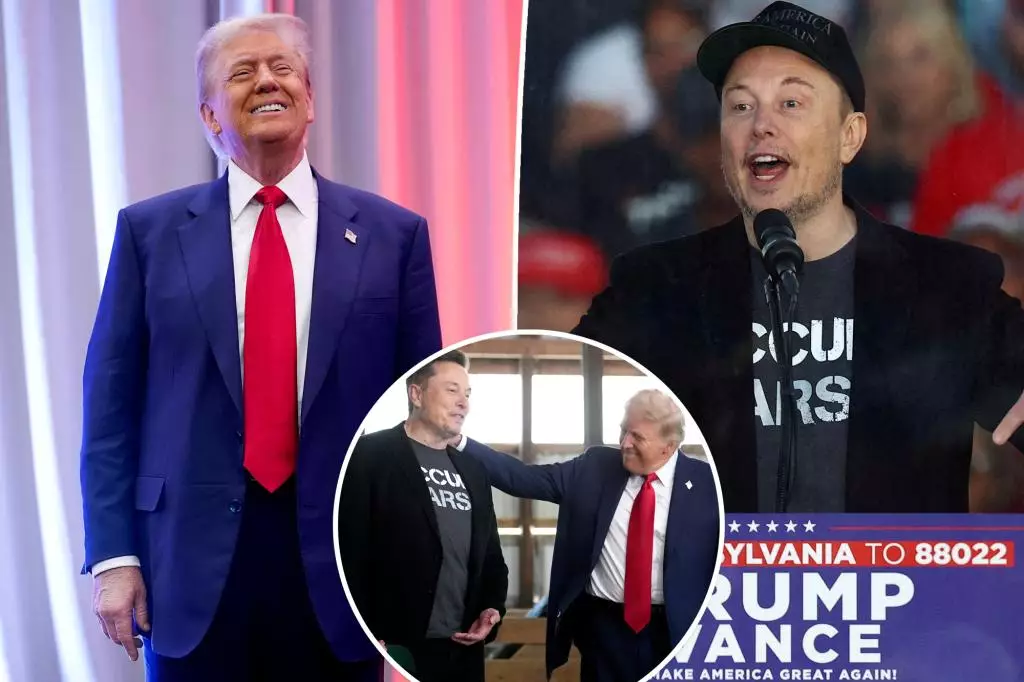In recent months, the evolving relationship between Elon Musk and Donald Trump has become a topic of intense scrutiny, sparking mixed reactions among members of Trump’s inner circle. While this new alliance may seem beneficial from a strategic standpoint, it has left many of Trump’s long-time associates feeling sidelined. This article delves into the implications of their partnership, the perceptions within Trump’s circle, and the potential impact on political dynamics.
Elon Musk, the enigmatic CEO of SpaceX and Tesla, has established a notable presence at Mar-a-Lago, Trump’s opulent estate in Florida. Sources indicate that Musk’s involvement has escalated to the point where he has participated in significant discussions, including conversations with world leaders like Turkey’s Recep Tayyip Erdogan and Ukraine’s Volodymyr Zelensky. Furthermore, it is reported that Musk attended a national security meeting, influencing deliberations regarding key administrative candidates.
This close-knit interaction has ignited discontent among Trump’s traditional advisors, who now find their influence waning. The dynamics have shifted markedly, with Trump preferring the company of Musk over those who were once indispensable to his circle. As a result, figures who previously held sway in Trump’s decision-making processes report feeling marginalized, leading to speculation about the long-term effects of this friendship.
Interestingly, amid these tensions, Melania Trump appears to be a supporter of Elon Musk. Reports suggest that her positive disposition towards the tech billionaire could be amplifying his standing within the Trump household. Photographic evidence from election night captures Musk alongside the Trump family, hinting at a burgeoning camaraderie that may bolster his position within this political landscape.
Melania’s apparent fondness for Musk has not gone unnoticed. Sources claim her warmer interactions with Musk have been more frequent, suggesting a personal rapport that could further entrench his influence. An anecdote shared during a recent gathering depicts her smiling at Musk, which indicates a level of comfort that could play a role in shaping Trump’s perceptions and decision-making moving forward.
Jealousy and Rivalry Among Advisors
The growing bond between Musk and Trump has also ignited a sense of jealousy among Trump’s advisors. Allegedly, Trump enjoys creating competition among his close associates, which historically has been part of his operational style. As a result, many advisors feel resentful, believing they have lost their privileged access to Trump, now frequently reserved for Musk. The tribalism within Trump’s circle showcases the intricate blend of loyalty, competition, and political theater that characterizes his governance approach.
The camaraderie with Musk has led some to speculate that Trump is positioning Musk as more than just an advisor. Musk has taken on an official role, leading a newly announced “Department of Government Efficiency” (DOGE), in collaboration with Vivek Ramaswamy. This appointment suggests that Trump values Musk’s innovative contributions and is willing to incorporate them into the administration’s framework, a move that could redefine bureaucratic efficiency within the federal government.
The Strategic Collaboration Ahead
Despite the jealousy and the shifting dynamics within Trump’s inner circle, the strategic collaboration between Trump and Musk could yield considerable benefits for both parties. With Musk’s entrepreneurial acumen and innovative mindset, he brings a fresh perspective that could enhance governmental efficiency. His self-styled moniker of “First Buddy” reflects a dual relationship, one of collaboration and possibly mutual ambition.
Trump’s appreciation for Musk’s influence among voters is also noteworthy. Reports suggest that Trump attributes part of his electoral success to Musk, particularly in engaging younger demographics, often referred to as the “bro vote.” This acknowledgment cements Musk’s role not just as a business leader but as a key player in Trump’s political strategy.
As the country steers through the complexities of governance and social dynamics, the partnership between Elon Musk and Donald Trump merits careful observation. Their collaboration introduces an unconventional approach that could substantially alter political and bureaucratic landscapes. However, the fallout from this newfound alliance—particularly the reactions from Trump’s traditional advisors—raises questions about loyalty, influence, and the potential reshaping of the power structure within Trump’s cadre. Whether this relationship enriches the administration or creates further fractures remains to be seen, but one thing is certain: this is a dynamic worth watching closely.

